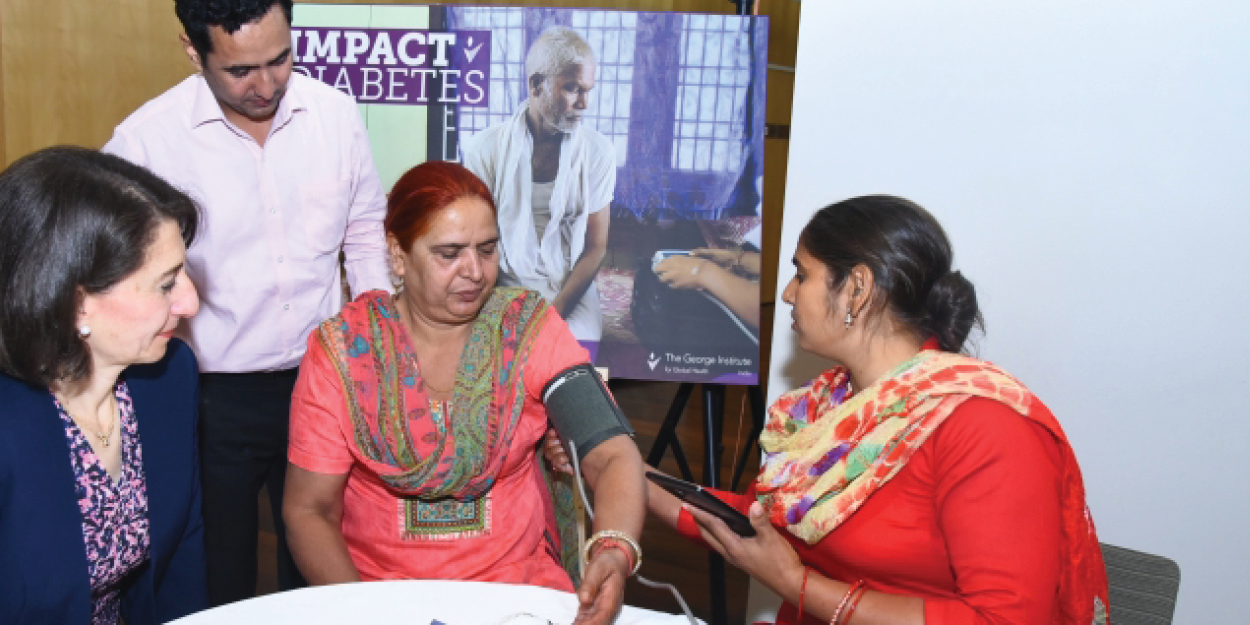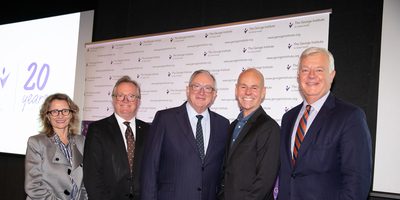
20 years of expanding access to health
Professor Vivekanand Jha was originally attracted to working at the Institute by its novel approach to research and its global mandate. These days he finds himself working on tough health challenges closer to home.
A kidney disease specialist for over 30 years and Executive Director of The George Institute, India since 2013, Vivek has witnessed the tragedy caused by chronic diseases countless times over the years.
This year he was the first Indian to receive the prestigious title of President of the International Society of Nephrology but it’s the recurring experience of treating patients in his homeland that remains close to his heart.
"I have been deeply affected by the catastrophic healthcare expenditure that many families in India incur while caring for loved ones with a chronic disease,” he says. “They go into deep poverty and destitution due to treatment costs and other associated expenditure. This poverty trap extends to next generations.”
“Ensuring people can access affordable health care is therefore very, very important, especially for chronic diseases because they develop and progress silently."
With less than 10% of the population of India covered by health insurance, those suffering from chronic disease will often ignore their affliction for as long as they can.
“As a result, it's not uncommon that people at the peak of their productive years are affected,” he explains. “In a country like Australia, someone with a bad chronic disease will be in their 70s or 80s. In India, they are typically in their 40s or 50s."
Once they do finally seek medical attention, patients are usually compelled to travel long distances to hospitals that can provide specialised care.
Travel is in itself a financial burden, but nothing compared to the cost of treatment. People will sell what they can – perhaps their only piece of land – to raise enough money, and often take out loans, usually with high interest rates. More often than not, this locks them into a cycle of poverty.
“That's why The George Institute has always focused on those at the bottom of the pyramid," says Vivek. “We develop – and test using proper scientific methodology – solutions that are closer to the people, rather than expecting the people with a disease to come to the hospital."
Vivek's team runs the Institute’s Systematic Medical Appraisal, Referral and Treatment (SMART) digital health program in India.
SMARThealth is a mobile-based clinical decision support system for primary health care workers which has had demonstrated impact on the health of thousands of people across six countries already, including India. It enables health workers of all skill levels to provide high-quality, affordable and sustainable preventive care to patients at high risk of chronic diseases.
In India, community health workers are using this technology to deliver essential care to those who previously had little or no access, potentially saving many thousands of lives.
Initially developed for cardiovascular disease, the Institute is now expanding SMARThealth to cover the most common conditions that are responsible for death and disability in the Indian population.
“My dream is that majority of the Indian population are able to access high-quality, essential, primary health care and that they don't have to incur out-of-pocket expenses,” Vivek says. “SMARThealth is one of the key strategies that we are using to democratise healthcare accessibility and take it to the population that really needs it.”
Looking ahead, Vivek hopes that The George Institute continues to build its global capacity while responding to local health challenges.
“Quite simply, I hope that the Institute will become the go-to organisation for finding evidence around major challenges related to health problems in India,” Vivek says. “We want to continue working on finding solutions that are affordable, sustainable and scalable, and that can be translated relatively quickly to other parts of the world."
Celebrating 20 years: Vivek’s top moments
- A growing office: “I've been really glad that we have grown so much in terms of staff strength over the last five or six years.”
- Building local capacity: “Initially, our research programs were mostly led by academics based outside of India. Now we have large number of high-quality India-based, mid-level investigators who are leading their own programs.”
- Unique impact: “The Institute is almost unique in India because there are very few independent research organisations focused on discovery and implementing research findings, while also focused on delivering impact and social change."


